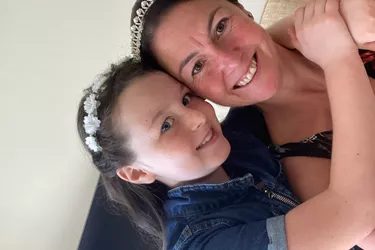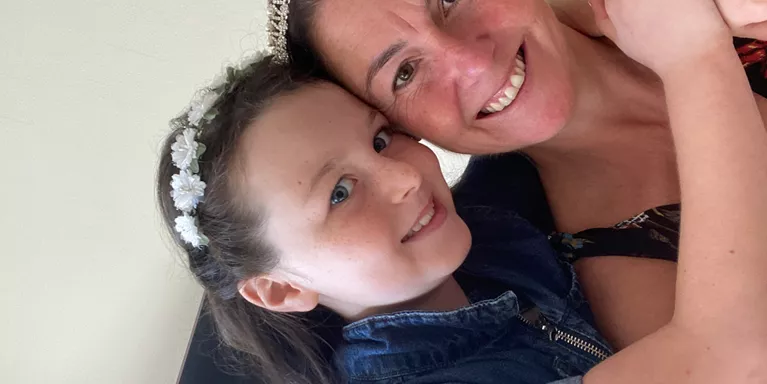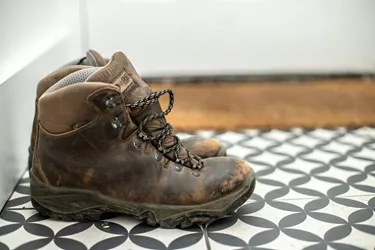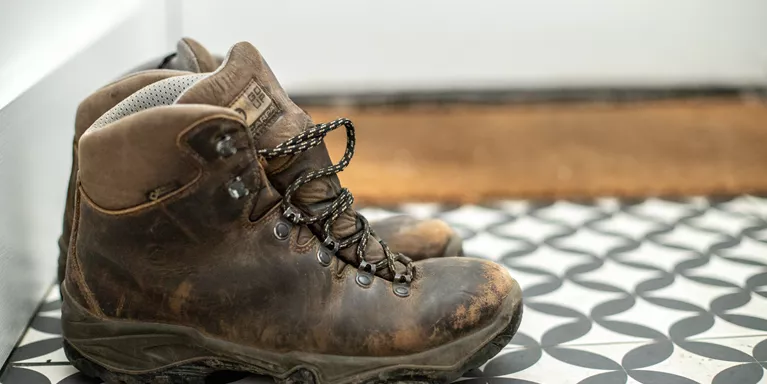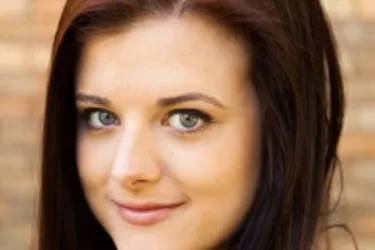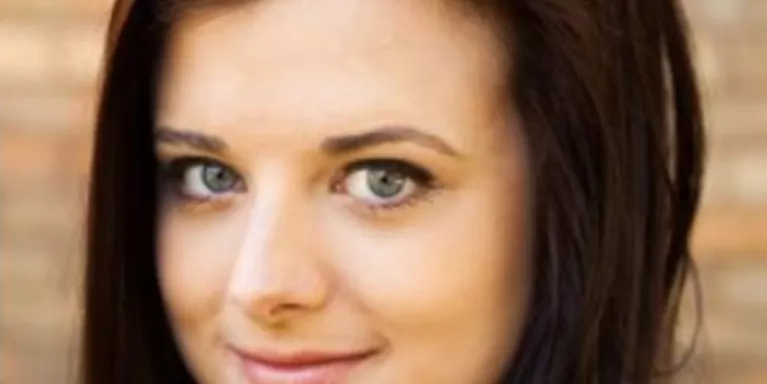Living with grief and PTSD
This blog discusses the death of a partner and the death of a child.
In December 2015, Anna Louise was walking home from a Christmas party with her family - husband Stuart, son Fraser and daughter Elizabeth. And in one unthinkable moment, her life was turned upside down forever. A car struck her husband and son.
Stuart died on impact while Fraser, seven, was taken to a specialist unit in Bristol where Anna was told his injuries were too severe for him to survive.
Fraser’s organs were donated saving the lives of four people. Amid her grief, Anna Louise was looking after her daughter, who was just three and a half. Here she shares her story of looking after a child who is dealing with shock and grief while dealing with her own PTSD.
A day after my husband and son passed away, I sat my daughter down. She was just three and a half. I explained that the boys wouldn’t be coming home. I pointed to two birds in a tree and said “that’s Daddy and Fraser now. They will be watching over us.”
She seemed to take it in but I didn’t know what she had seen or what she had remembered from the incident. I still couldn’t remember clearly what had happened in those moments myself.
I was offered anti-depressants but I had a three-year-old to look after, police reports to fill in and a funeral to organise. And I was determined that it was my responsibility to say goodbye to them properly. They deserved that.
People would tell me, “you need to be strong for her.” But then the door would close and it was just me and Elizabeth at home. And I’d need to deal with her emotions before dealing with my own. I couldn’t curl up in a ball – I had to play, cook, read stories…
It is the motherly instinct to worry though isn’t it? And I worried that there might be a long-term effect on her. I arranged for her to have play therapy by 2 Wish Upon a Star at her school.
A year or two after we lost the boys, Elizabeth seemed very emotional and distressed. I didn’t know where to go for support. I asked our GP and they didn’t really know either. I ended up contacting Barnardo’s who sent a therapist to Elizabeth’s school and, together, they were brilliant.
But it is incredibly difficult to deal with your own worries when you are worrying about your child.
In November of the following year, I suffered a huge anxiety attack. It was Bonfire Night and the bangs and the noise triggered something in my memory. I had heart palpitations, I was shaking and sweating. I was in tears but I had to force myself to put on a brave face for her. I went to see my doctor and it took three assessments for me to be diagnosed with PTSD.
There is a long wait for help but I was fortunate that I could pay privately for treatment. I received Revisionary Therapy for an hour every week where I talked through what happened. I was suffering a lot of anxiety and I was worried I would have a flashback – perhaps while I was driving – that would put Elizabeth’s and my life at risk. What would I remember and when?
They were very intense sessions where I talked through what I could remember of the incident and all the trauma that followed. Because it wasn’t just one traumatic incident, it was a whole series of horrendous, awful incidents.
After the crash, I identified Stuart’s body and said goodbye to him, I drove in the ambulance with Fraser to the unit at Bristol, having to travel on the road where the incident took place. There, I was told that there was no hope of survival and I had to sign forms after forms after forms. And I had to say goodbye to Fraser.
But I needed to piece it all together in my own mind. Going through it every week was horribly painful but then it was almost 3pm and I had to pick Elizabeth up from school and be a Mum again.
It took me two years to get hold of the police report and reading it was horrendous. But I had always felt perhaps there was something more I could have done to save them. But it gave me the answers I needed. It wasn’t my fault, Stuart’s fault or Fraser’s fault. I didn’t get that until I read the statements.
I also undertook a site visit with a therapist. After that, I thought I’d be ok and that the PTSD would go away. But this year has been difficult. I think I had Covid-19 in February which left me feeling really emotional and drained.
It left me wondering if my body was affecting my mind – or was it the other way around?
I have also met someone new and, while I feel incredibly lucky, I have been feeling guilty about marrying again.
Elizabeth is now eight. She is a feisty, big character who loves acting. She is proud of me and wants me to be happy. It was Elizabeth that encouraged me into my new relationship. I had been closing myself off from anything but friendship before she intervened!
She has also researched everything that has happened. She has found pictures of the driver and she has watched documentaries where I talk about everything that happened. I have been vocal in the media because I set up the Believe Organ Donor Support Charity to educate children and young people about organ donation. Her school has been brilliant and they keep a close eye on her and she has been having one-to-one sessions.
She talks about her Dad and Fraser all the time. And now I’ve met Zach, she refers to her two Dads and her three brothers, as Zach has two sons of his own.
It is ironic that I tell her that “it is ok not to be ok” while I am doing my best to remain strong for her. And I’ll think I am doing ok but it will all hit me suddenly and I’m a mess again.
But as a Mum, you push your emotions out of the way the best you can and you cling on your smile.


Information and support
When you’re living with a mental health problem, or supporting someone who is, having access to the right information - about a condition, treatment options, or practical issues - is vital. Visit our information pages to find out more.
Share your story with others
Blogs and stories can show that people with mental health problems are cared about, understood and listened to. We can use it to challenge the status quo and change attitudes.










